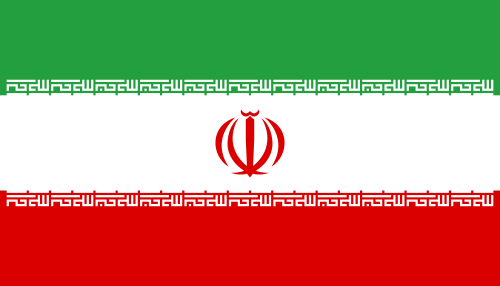Ardabil University of Medical Sciences
Date Establishment
1986
World Ranking
500
Master
229
Academic Staff
229
Students
3471
International Students
250
In 1986, the university received authorization to establish the Arak Medical School. This initiative was pursued by the director of the Regional Health Organization of the central province, the representative of the People of Arak in the Islamic Consultative Assembly, and with the support of the authorities at the time. By February 1366, the Iranian Medical School was founded, leading to the formation of the College of Medical Sciences.
The Shahid University of Medical Sciences, Nursing and Midwifery School began its journey after admitting 60 medical students, with Beheshti commencing his career in a rented building. The school gained independence in 1367 and evolved into the University of Medical Sciences in 1369. In 1373, following a merger with the Regional Organization for Health, it took on the responsibility of providing healthcare in the Central Province and was renamed the Arak University of Medical Sciences and Health Services.
Currently, the university is home to 3,471 students and 229 instructors. It has made significant academic contributions, with 862 scientific papers published in national newspapers and conferences to date. Arak University of Medical Sciences also boasts three specialized journals and has hosted one conference.
_Medical College
_Dental College
_School of Rehabilitation
_Nursing School
_Paramedical College
_School of Health
_Shazand Nursing School
_Arak Health Higher Education Complex
In the 2023 World Ranking Times, Arak University of Medical Sciences achieved a significant ranking, placing between 401st and 500th. This is a commendable achievement that reflects the university's commitment to excellence in medical sciences. Congratulations to Arak University for this global recognition!
Student dormitories at Arak University of Medical Sciences (ARAK) are seen as a second home for students and play a crucial role in fostering their spiritual vitality, peace of mind, intellectual growth, character development, and academic performance. The Department of Dormitories at ARAK is committed to enhancing the quality of life in student dormitories, upholding individual and collective rights, instilling a sense of responsibility and self-esteem, and ensuring student safety, all within the framework of the Ministry of Health and Medical Education's laws and regulations.
The university currently has five dormitories (three for male students and two for female students), with two more under construction. These include the Imam Reza's Boys' Dormitory, Shahid Mashayekhi Boys Dormitory, Hazrat Masumeh Girls' Dormitory, Nagis Girls Dormitory, and two dormitories under construction: Parvin Etesami and Shahid Soleimani.
The Nutrition Department at Arak Medical Sciences, one of the university's most critical departments, oversees the management, planning, and monitoring of kitchens and dining rooms. It is responsible for preparing, installing, and repairing dining room equipment, procuring food raw materials, controlling vacuum food items needed for cooking, and distributing around 3,000 meals (breakfast, lunch, and dinner) daily, amounting to approximately 400,000 meals annually. The department prioritizes the needs and preferences of its consumers in providing these services.
The Student Welfare and Cooperation Unit, a sub-unit of the Student Management Department, helps meet some of the basic needs of students by leveraging the facilities offered by the Student Welfare Fund of the Ministry of Health and Medical Education and Arak University of Medical Sciences. This unit serves as a bridge between the university and the Ministry of Health's student welfare fund, offering loans to students, including the Student Scholarship Loan, housing deposits for married students living outside the dormitory, and Marriage Loans.
The Department of Physical Education aims to enhance the quality and quantity of sports activities, promote physical health and vitality, and foster a sporting spirit among students. It offers classes in Physical Education Units 1 and 2, provides opportunities for students to participate in indoor and national sports competitions, and promotes public sports and championships for all students.
The initial registration fee for students at the university is $50. An annual fee of $50 is also required. For those interested in the Persian language course, which caters to all levels from beginner to advanced, the fee is $300.


